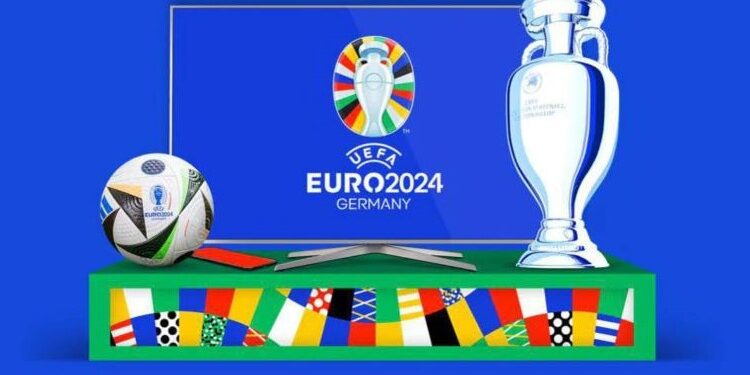The Diplomat
Sports tourism has gained great relevance in recent years, driven by globalization, increased mobility and the popularity of major sporting events. This type of tourism, which has established itself as an important source of income for many cities and countries around the world, represents around 10% of global tourism and generates more than 700,000 million dollars annually (655,000 million euros).
Data from UN Tourism show how sports tourism, which has exploded in recent years due to events such as the Olympic Games or world football championships, such as the Euro Cup that began last Friday in Germany, has an increasingly important role in the economic diversification, growth and sustainable development of destinations around the world.
Specifically, the number of travel reservations to Germany for these weeks has increased by 60% and represents 12% of total reservations in the world. Some cities, like Leipzig, present an increase that reaches 175%. Behind them, other cities show similar increases, such as Dusseldorf (+173%) and Stuttgart (156%). Others have large increases, although somewhat smaller, such as Munich (+76%), Frankfurt (+64%), Berlin (+35%) and Cologne (+32%).
The main European travelers to German cities to attend this sporting event are the British (19% of total bookings), followed by Austrians (15%), Spanish (12%), Germans (10%) and the French ( 10%).
The Paris Olympic Games
Spaniards are among the European travelers who show greater interest in attending the big summer sports events: the Euro Cup and the Olympic Games in Paris. According to eDreams Odigeo data, the city of Paris accounts for 22% of total reservations, with an increase of 62%.
Paris reservations represent 33% of the total made in France, mostly from Europeans, given its proximity. After the Spanish, the Germans (12%), Italians (12%), French (9%) and British (7%) are the ones who have made the most reservations for these Olympic Games.
Regarding the length of stay in the French capital, 40% of travelers stay in the French capital between 7 and 13 days, 20% choose to extend it more than two weeks, while another 20% prefer shorter stays. 3 or 4 days. All of this will significantly boost the economy of the French city.
Spaniards travel 13% more to France and 17% more to Paris on the dates of the sports festival, according to the comparison with last year. Paris represents 77% of reservations to France from Spain, followed by Nice (8%), Lyon (5%) and Nantes (5%).
Spanish travelers mostly choose 3 or 4 day getaways in Paris (41%), while others stay 5 or 6 days (19%) or even more than a week (15%).
In the case of Spain, for example, tourism linked to sports is in full expansion. According to the latest data from the National Institute of Statistics (INE), in 2023 more than 5.3 million trips were initiated mainly by sport with a total associated expenditure of 2,845 million euros (1,551 million by international tourists and 1,293 others). of residents in Spain).
Specifically, 4.2% of the total trips made in 2023 for leisure, recreation or vacations by residents in Spain had reasons related to sports, reaching 1.7% in the case of international tourist entries.
Experts say that mega sporting events such as the Olympic Games and the World Cup can act as catalysts for tourism development if properly leveraged in terms of destination branding, infrastructure development and other economic and social benefits.
“This type of tourism provides many benefits at the local level since it accentuates the creation of permanent and temporary jobs in various sectors and the improvement of infrastructure through the construction of stadiums, the modernization of transportation systems or urban renewal,” explains Kelly. Cuesta, professor of Sports Marketing at the European University.
Globalization has played a crucial role in this boom, allowing sports fans to access information and events quickly and easily. Marketing strategies have also evolved, using digital platforms to promote sporting events and destinations, reaching wider and more diverse audiences.Sport moves masses and transcends cultural, linguistic and social barriers. Through massive sporting events, millions of people from around the world travel to the host cities of these matches and share their experience while connecting with each other emotionally. This is directly reflected in a great impact on the local economy.
Sports tourists not only attend sporting events, but also spend on lodging, food, transportation and entertainment, benefiting a wide range of local businesses.
During major sporting events, such as the Olympic Games, the Football World Cup or the Champions League final, thousands of tourists fill the host cities, investing in accommodation, restaurants, local transport, shopping and entertainment. Added to the increase in customers in these services is the increase in prices during these important dates.
Professor Cuesta explains that during the London 2012 Olympic Games, the city saw a 31% increase in hotel rates compared to the previous year, just as what happened in local restaurants and bars during the 2014 Soccer World Cup that despite the price increase, they doubled their sales during the tournament.







